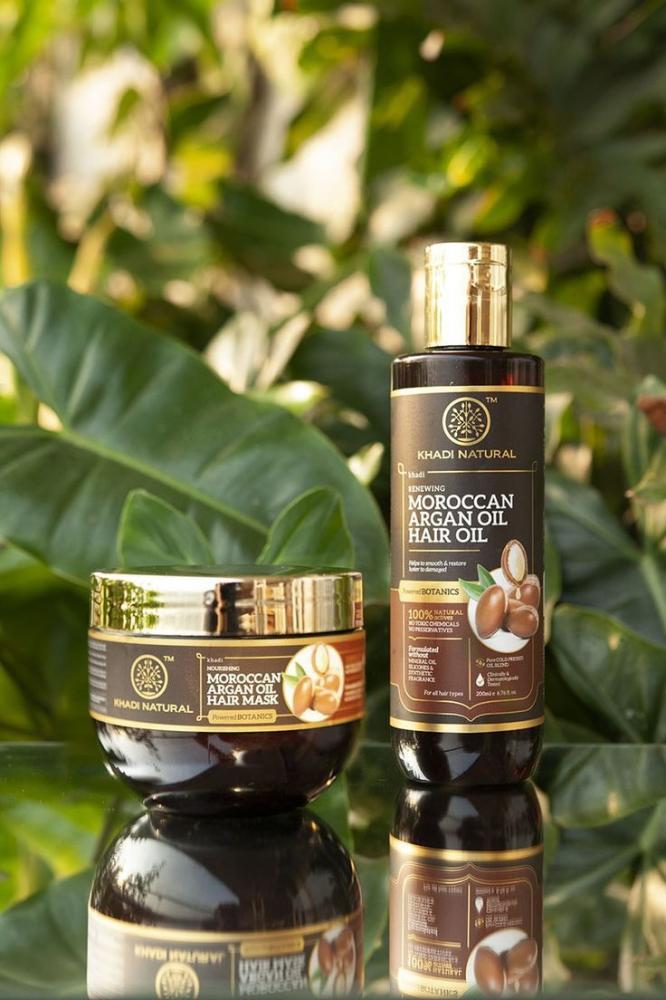Dry hair is a problem for many people, and they cannot deal with it. What are the ways to care for dry hair? What products are suitable for it?
There are several types of hair, including dry, oily, and normal, and each type has its own specific care methods and treatments. In this article, we will discuss ways to care for dry hair, which is a problem for many:
Methods for Caring for Dry Hair
Here are the most prominent ways to care for dry hair:
1. Reducing the number of times you wash your hair.
Instead of showering and shampooing daily, you can reduce this frequency to once or twice a week. This reduces the hair's exposure to the chemicals in shampoo and reduces the need for styling with hot air and heat straighteners.
2. Using a shampoo specifically for dry hair.
Using a shampoo specifically for dry hair, which is gentler, less harmful, and contains fewer drying ingredients, helps care for your dry hair.
3. Using a hair conditioner.
Using a moisturizing hair conditioner preserves and protects the outer layer of the hair, allowing it to retain more natural oils, thus reducing dryness.
4. Use Natural Oils
Natural oils, such as coconut oil, jojoba oil, tea tree oil, and peppermint oil, can be used to massage your hair before showering. Natural oils give your hair a shiny, healthy appearance.
5. Trim Split Ends
Trimming split ends and broken hair helps reduce frizz and gives your hair a more manageable appearance.
6. Take Vitamin and Mineral Supplements
Vitamins and minerals, especially vitamin B12, vitamin D, folic acid, selenium, and iron, help maintain healthy, shiny hair.
7. Stay Hydrated
Drink adequate amounts of water daily. Coconut water is also very beneficial for your hair.
8. Avoid Using Unsuitable Hair Products
Alcohol is a drying ingredient that may be found in some hair care products. Therefore, you should avoid any hair products containing alcohol to reduce dryness.
It is also best to avoid using anti-dandruff shampoos, as they can dry out your hair.
9. Use Treatments Specific to Dry Hair
If none of the dry hair care methods we mentioned help, you can ask your hairstylist about specific professional treatments they can perform to care for your hair.
Tips for Styling Dry Hair Properly
We mentioned at the beginning of the article that one of the ways to care for dry hair is to avoid over-styling and over-heating it. Here, we will mention some tips from hair experts for styling hair in a healthy and safe way to protect it from dryness:
Wrap your hair in a towel after use or leave it to dry naturally in the open air, and avoid exposing it to a blow dryer immediately after washing.
Leave your hair to dry before combing it, as hair is more sensitive and prone to breakage when wet. It is best to leave it to dry and then comb it. Unless your hair is curly, such as African hair, it is best to comb it while it is wet to reduce the risk of breakage.
Avoid over-combing your hair, as brushing it 100 times a day can cause breakage.
Avoid using hair-holding products, such as hairspray, as combing your hair after applying these products can cause breakage and hair loss.
It's best to use a hair dryer on dry hair, using low to medium heat and avoiding high heat. Do not leave hair curlers on a strand for more than two seconds, as the heat can cause hair breakage.
Do not use hair extensions constantly, as they can pull the hair and cause breakage, which can lead to permanent hair loss.
Causes of Dry Hair:
After discussing ways to care for dry hair, let's explore the causes of dry hair below:
Excessive hair washing and daily shampooing.
Using strong shampoos and cleaning products or those containing alcohol.
Frequent use of hair dryers and heat straightening.
Malnutrition and anorexia nervosa, which deprive the body of the vitamins and minerals necessary for healthy, shiny hair growth.
Exposure to dry air, due to weather changes at certain times of the year.
Hypothyroidism
Hypoparathyroidism
Menkes syndrome, a condition in which the body is unable to absorb copper, affecting the physical and mental development of the affected person.
Other hormonal imbalances.

